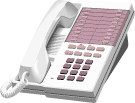|
Audit Arizona Action |
|
|
|
Audit Arizona Action |
|
|
|
.: URGENT

 List of AZ Senators
List of AZ SenatorsList of AZ House Reps Sample Letter  Contact County Supervisors
Contact County SupervisorsBackground Info . : Take Action : .
Click on the links below to help fair elections:
.: Important Research :.
.: Groups Working on
. : Recent Posts : .
USING THE MEDIA TO LOBBY . : Archives : .
2006-02-12 |
. : Home : .
Intimidated?
.: Current
Voting equipment, source code escrow
------------------------ Verifiable paper ballot
------------------------ . : Useful Links : .
. : Credits : .
Template By Caz |
|
Sunday, February 19, 2006LOBBYING YOUR LEGISLATOR: Personal Visits, Phone Calls, Letters, Using the Media LOBBYING YOUR LEGISLATOR: Personal Visits, Phone Calls, Letters, Using the Media LOBBYING BY PERSONAL VISIT One of the most effective ways to lobby legislators is in face-to-face visits with them. It's difficult to predict a legislator's availability when the Legislature is in session. But if legislators know that their constituents have traveled from a distance, they will generally try to see them. It is always best to call first and make an appointment. Contact both your Representative and Senator. Here are some suggestions for your visit. 1. Be on time for your appointment. But don't expect legislators to be on time; they often have hearings or meetings they cannot anticipate and cannot leave. 2. Before the appointment, practice a three-minute statement with the information you want to present. This will help you to be concise about what you want and why you want it. 3. It is usually best to visit your legislators in a small group, three people is optimum. Never plan on staying more than 10-15 minutes. Going alone may be unsatisfactory because legislators may try to out-talk you or you may reach an impasse too quickly. 4. If you are a constituent, begin by telling the legislator that. Let your legislator know if you are working with others on the issue, if you are active in the community, or if you are representing members of an organization. 5. Present the legislator with a Fact Sheet and a copy of the bill. Include amendments if any are being proposed. Remember that your issue is probably one of dozens she/he is having to deal with. The information you provide to the Legislator will go into a bill file and will be available for reference at a later time. 6. Talk to legislative staff, preferably, the Legislative Assistant, and present the same information and materials. Establishing a relationship with key staff is very important. They typically have the ear and the confidence of the legislator and are most likely going to be doing most of the leg work on the issue. They are also more accessible to you on an on-going basis. 7. Be clear about what your position is and what you would like your legislators to do. Identify your bill by name and number whenever possible. Give the legislators some key words: "This is about having a National Nurse teach Americans ways to live healthy." 8. Be firm but courteous as you express your position. Do not try to force your legislators into changing their minds or committing themselves when they don't want to, but it's fair to ask them how they stand on the issue. 9. Follow up your visit with a thank-you letter. Use it to restate your position. LOBBYING BY TELEPHONE You can find the telephone numbers of your elected US Representatives and US Senators by visiting here or by calling these toll free numbers: 1-877-762-8762, 1-888-723-5246, 1-800-426-8073 Here are recommendations for making calls to your legislators. 1. Identify yourself by name and address. 2. Identify the bill you want to talk about by name and number. 3. Briefly state your position and how you would like your legislator to vote. 4. Ask for your legislator's view on the bill or issue; then ask for a commitment to vote for your position. Don't argue if the legislator takes a position against you or is unwilling to take a stand. 5. Supply requested information as quickly as possible. The legislature moves rapidly during the session. 6. If you cannot speak to your legislator directly, talk to a secretary or legislative aide, identify yourself, the bill you want to talk about by name and number, and state how you would like your legislator to vote. Legislator's staff are very reliable and will tell the legislator that you called and what you said. 7. Follow up the call with a note thanking them for their time. Use the note as an opportunity to briefly restate your position. LOBBYING BY LETTER Letters are important, even critical to influence legislation. Letters to the writer's own Senator or Representative are especially important. Here are some guidelines to follow in writing effective letters. 1. Address the letter correctly. (Note: because of security related to 9/11, it is best to email your letters- you can find the email address of your U.S. Senator or Representative at http://www.visi.com/juan/congress/ ) Always put the Honorable Senator ____ or the Honorable Representative ____ in your introduction. 2. Clearly identify the issue about which you are writing and your position, in support or in opposition at the beginning of the letter. Be sure to include the bill number, if there is one. 3 .Write in your own words and include thoughts of your own. Tell how the problem and the proposed legislation affects you. 4. If you are a member of an organization which is pursuing the issue, include the organization's name. "I'm a member of the National Nursing Network Organization." 5. Show as mucyh knowledge as you can, but avoid sending a postcard or form letter. Handwritten letters are fine if they are legible. Include your name and return address so legislators can respond. 6. Write briefly, on only one subject at a time. 7. If you live in the legislator's district, be sure to say so. 8. Ask for a response and the legislator's position on the issue. 9. If you don't get a reply to your letter, follow it up with another letter asking for a response. 10. When a legislator votes as you asked, send a thank-you note. A thank-you is a refreshing change that is likely to be remembered.
|